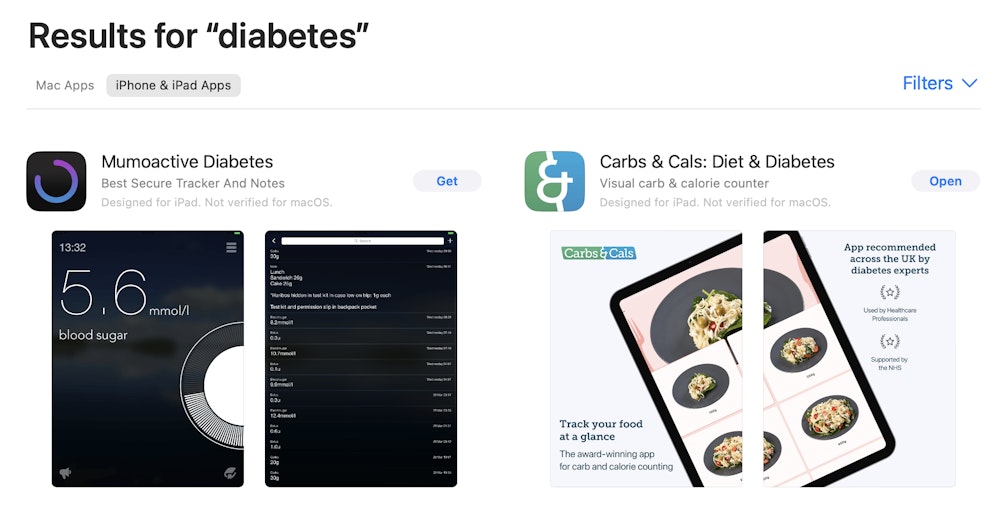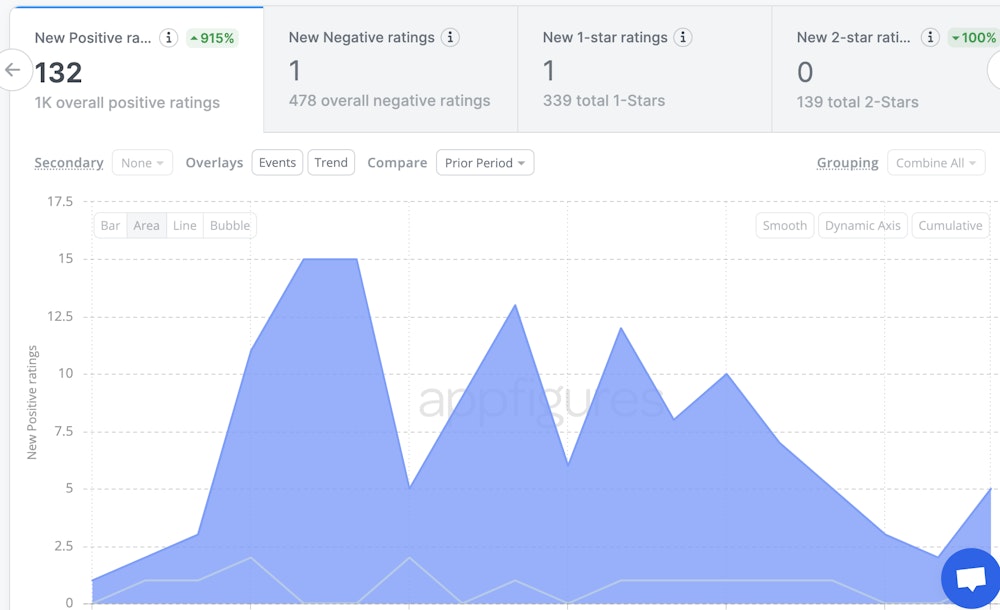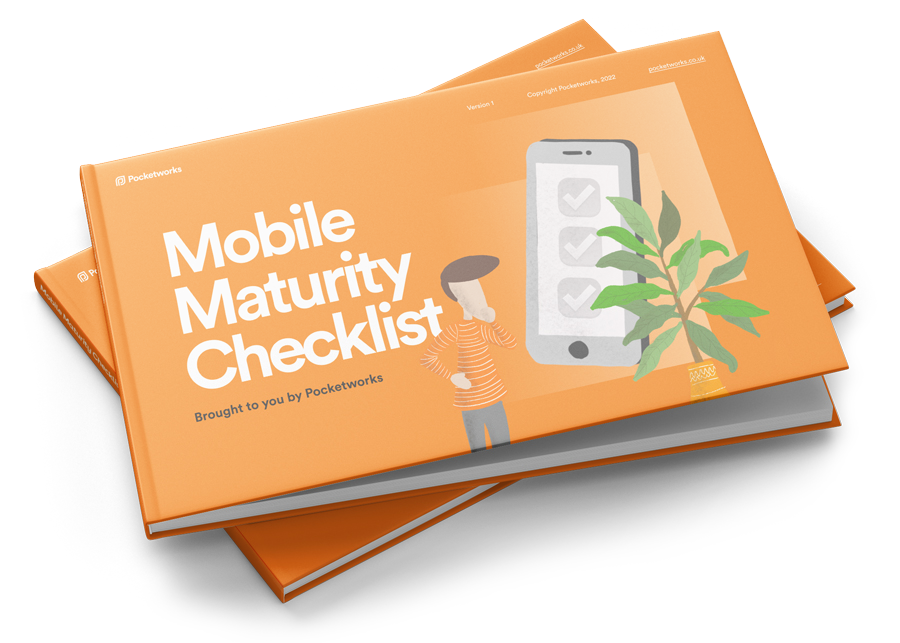If you're responsible for delivering an app, it's very likely you're looking to get more downloads. One way to do that is to rank highly when people search for you on the App Store. There are lots of ways to get to the top, but one often-overlooked approach is to increase your volume of ratings and reviews.
As Ariel from AppFigures said:
"Most people don't believe me when I say, if you have more ratings, you're gonna beat apps that have more downloads."
If you're not looking at this, now really is a good time to think about gathering more ratings from users. Let's look at an example.
One app we're growing is Carbs & Cals, and part of driving growth is ranking highly when people search for “diabetes” on the app store. At the time of writing, you'll find Carbs & Cals in positions #1 or #2, which is ideal.

This success is partly due to us increasing volume of ratings. It's something we've been experimenting with recently, and those experiments have created a 900%+ increase in ratings.
Here are some techniques to help you get more ratings and, in turn, drive up your ranking.
Ask users to rate your app
If you don’t ask, you don’t get. This goes for ratings, too. You’ve probably seen it when an app asks you for a rating. A popup says, “Enjoying this app? Please rate us”. To do this, you simply need to have your developers add some code to your app that prompts users to rate it.
Only do this after you have given them significant value
Once someone has just downloaded your app, there’s no point in asking for a rating. You need to make sure they’ve received some value from your app. For example, if your app is a train ticket booking app, ask for a rating after they’ve purchased a ticket.
Also, don't interrupt your users while they're in the middle of getting something done. And don't keep nagging them to rate every time they use the app. We've witnessed people giving negative reviews for this kind of behaviour!

Get an in-app rating first before asking for an app store rating
This is like testing the water. You can ask people to rate in-app without sending them to the app store to avoid low ratings.
Then, if they rate you highly in-app, ask for an app store rating.
Using in-app feedback will help you understand why
Similarly, if you want to learn why people are rating you low or high, you can ask them as part of collecting some feedback within your app. You’ll build up a lot of feedback, which will help you plan your future app roadmap.
Try applying these ideas to your own app, it can be a pretty quick win in the scheme of things.


